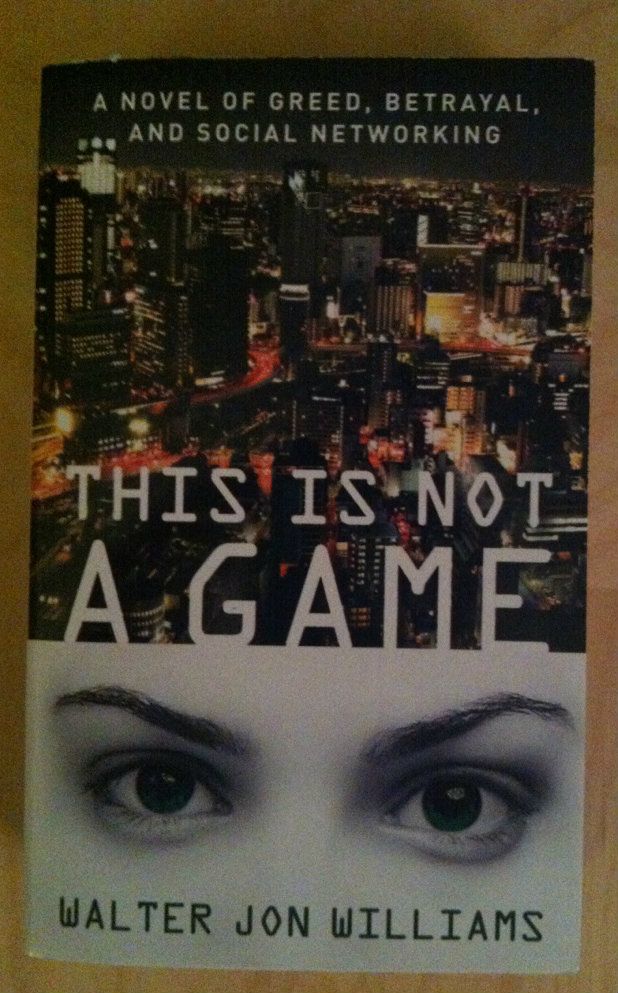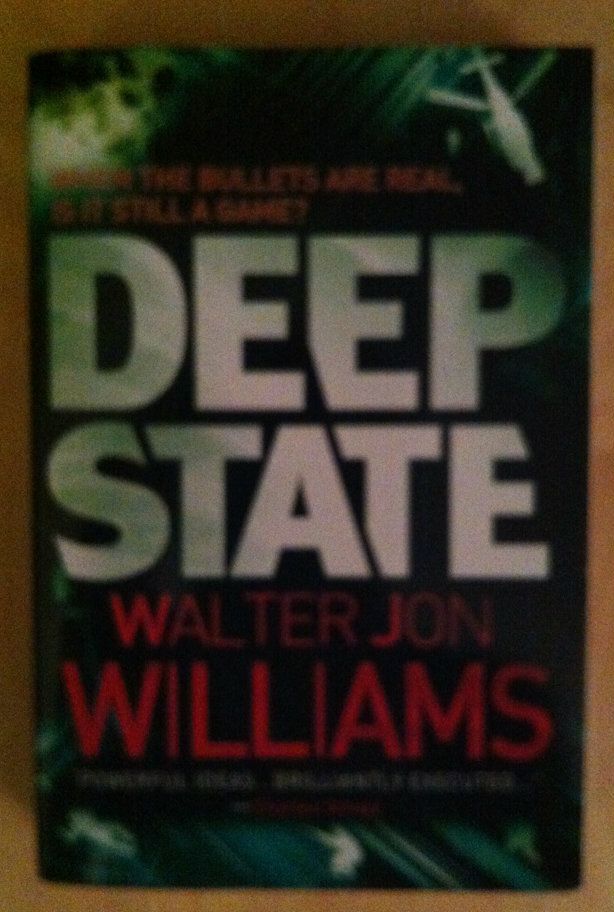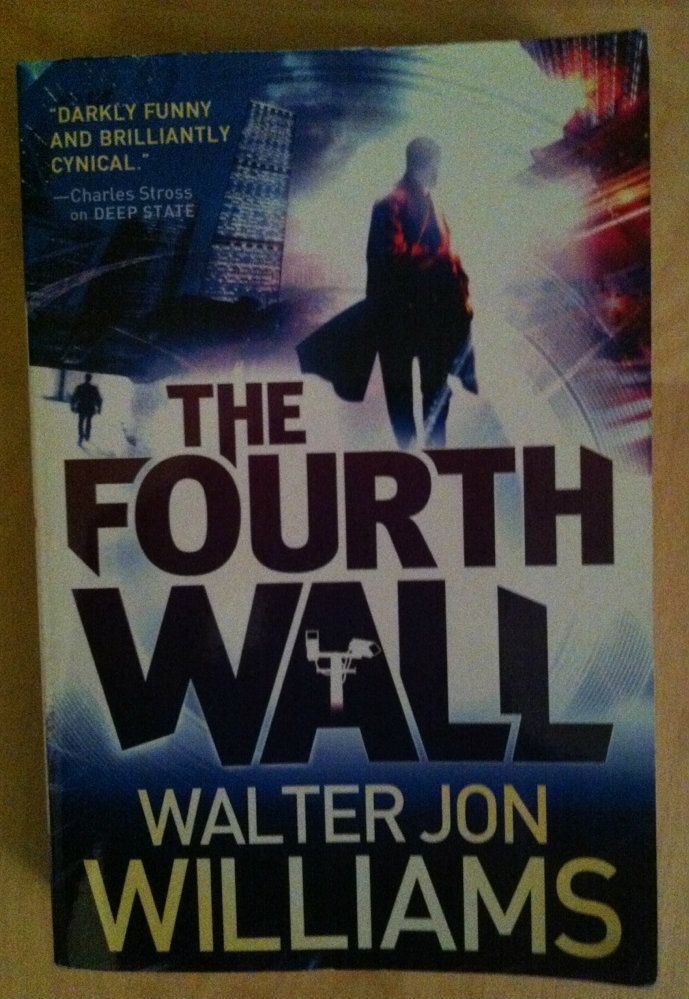Or why you should read This Is Not A Game, Deep State, and The Fourth Wall by Walter Jon Williams
I love me some good contemporary near future science fiction. When it's good, it depicts a world recognizable as our own but with some amazing high concept idea or advancement built into a entertaining narrative (generally a thriller plot). The Dagmar Shaw novels are these kind of books.
This Is Not A Game: I love this book. In it we are introduced to Dagmar Shaw,an alternate reality game designer, who gets caught up in a domestic uprising in Indonesia and a larger, more Sci-fi based thriller plot. (ARGs for the uninitiated are puzzle games that take place on the internet with brief moments of live action role play). To extricate herself from the dangerous situations she finds herself in, Dagmar writes her problems into the ARG games and crowd sources them to the ARG players. This is not a game therefore has couple great Sci-fi central concepts and a tense, serrated-knife-edge of a thriller plot. Thematically the novel deals with the way in which reality is increasingly reliant on intermediaries, be they technological or opinion, to be interpreted. Playing to this theme, and what I love most about this book, is the dramatic tension between events as interpreted by the protagonist and reality. This Is Not A Game's use of a possibly unreliable narrator is just brilliant. Did I mention that I love this book?
(Also the chapter titles of "this is not CHAPTER THEME" are also thematically brilliant and such a nice touch.)
Deep State: The second book in the series is probably the smartest. In it Dagmar Shaw and her team of ARG specialists are recruited to use their social networking skills to facilitate a revolution in Turkey against a fictional junta. This is complicated by a Sci-fi magguffin of a spoiler nature. It's worth noting that this book was written BEFORE the Arab spring, which makes it tremendously accurate speculative fiction. Unfortunately, the book was released as the Arab spring kicked off and I didn't actually read it until after the Egyptian government fell. As such, the book loses a lot of its magic: the real stories of the Arab spring, based on real life, are just so much more compelling. Also from a more novel-mechanics prespective, we know too much about the narrator for the previous tricks of questionable reliability to work. Deep State is still a good book, but due mostly to poor timing, is far less interesting than it could have been.
The Fourth Wall: The third novel in the series feels like a return to the form of This Is Not A Game. In The Fourth Wall, our protagonist and viewpoint character is Sean Makin an out of work former child actor who is hired by Dagmar Shaw to act in a choose-your-own-adventure movie broadcast to the entire world. Which is great for Sean until someone starts to kill cast members. It's a pretty thrilling book with some great sci-fi kernels wrapped in the popcorn fluff of the film industry. It's also tense as hell: everyone in this book is a moment away from catastrophic self destruction, including the semi-reliable protagonist, which makes the entire story constantly feel like it's in jeopardy. The fourth wall is a solidly entertaining and smart read and I would highly recommend it.



No comments:
Post a Comment